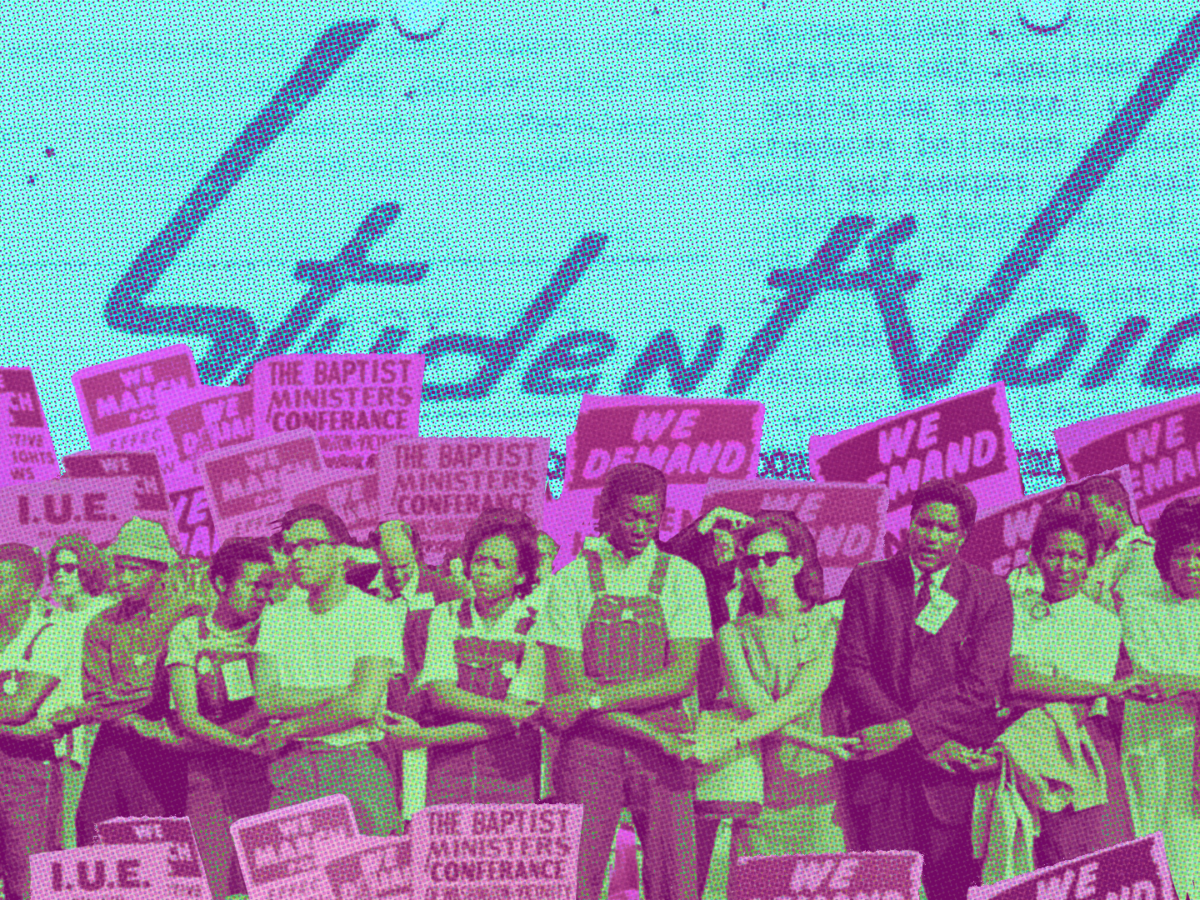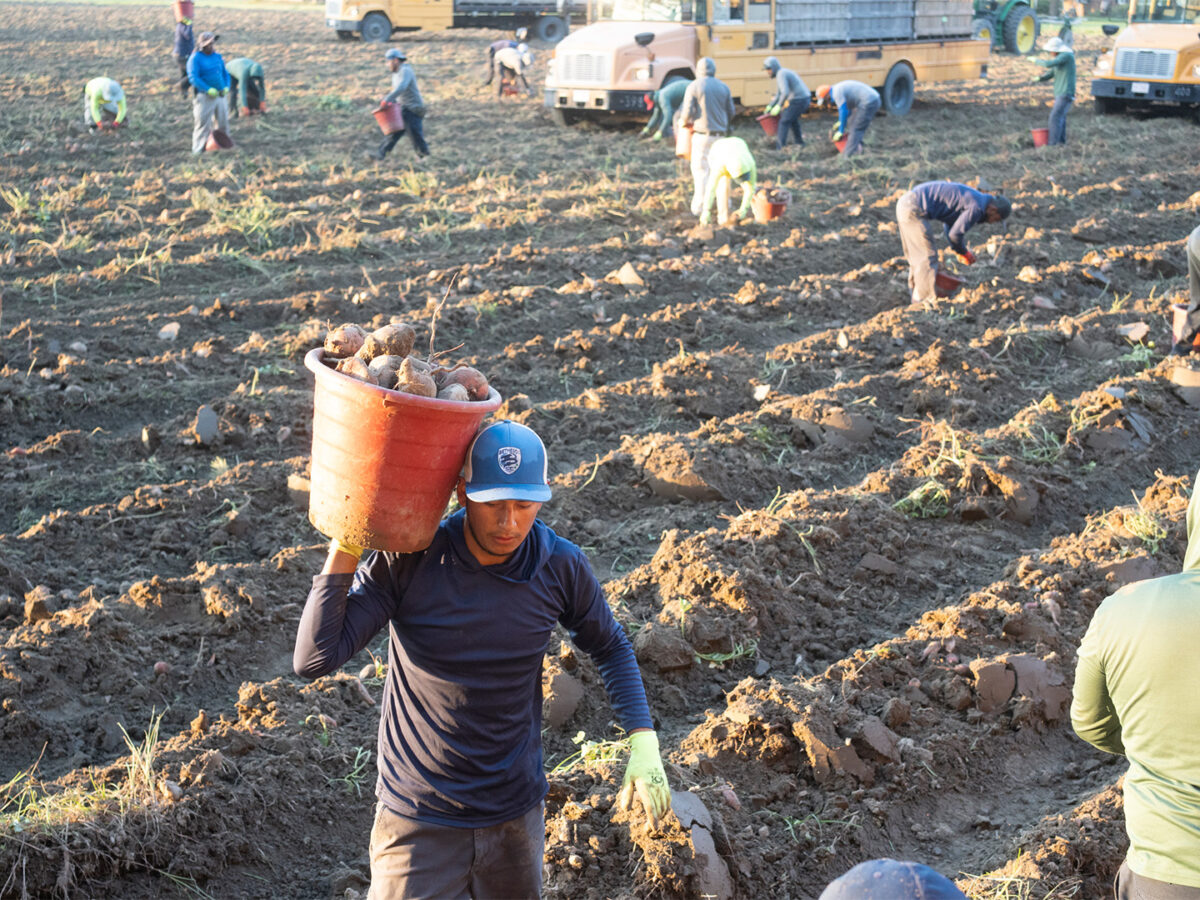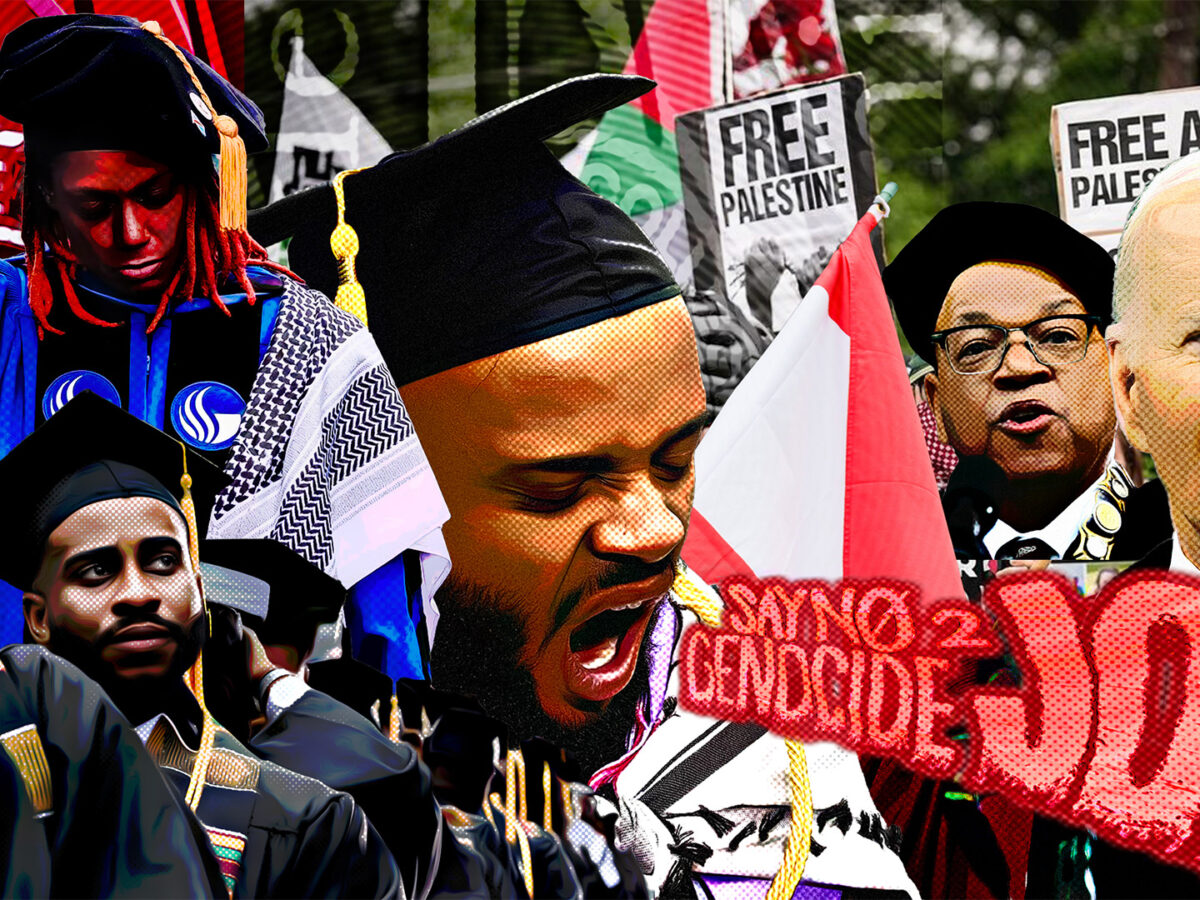Click to jump to an excerpt from The Parted Earth, below.
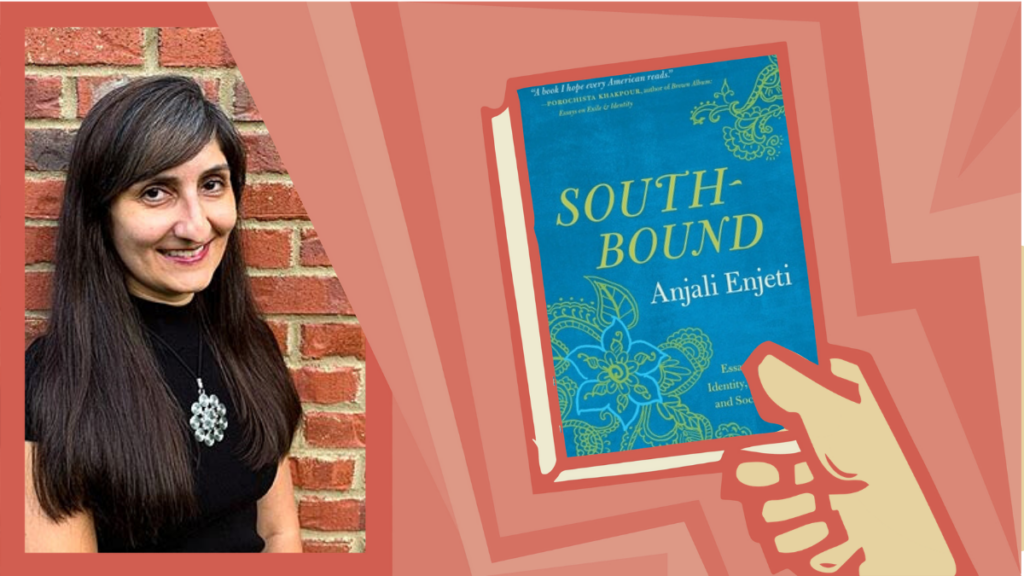
I first met Anjali Enjeti in the glass-vaulted lobby of Washington, D.C.'s Renaissance Hotel. The author and organizer had mobilized more than 20 Georgia writers attending the 2017 AWP conference to host letter-writing parties in our home communities to deliver to our senators. We received mixed results. But, Enjeti argued, this was perhaps the most important writing we could be doing.
Enjeti is a mixed-race, South Asian woman who left the Detroit suburbs at age 10 for a new life in the outskirts of Chattanooga, defined by Cotton Balls, confederate flags, and bible verses. She recounts the letter-writing experience in her latest essay collection, Southbound.
The author also co-founded the organization They See Blue Georgia, which engages South Asian communities and helped Georgia voters flip the Senate in the 2020 election. She is a close observer of the ways white supremacist systems impact society, and believes the solution is multiracial solidarity.
"[I went from] being an individual who felt harmed and traumatized, to being a member of a community of activists exploring the structural changes needed to make a more fair and equitable world," Enjeti says of her own anti-racist journey.
This spring, Enjeti debuted two new books. Southbound: Essays on Identity, Inheritance, and Social Change (UGA Press) addresses the killing of Vincent Chin, voter suppression in Georgia, white flight, and white feminism—among other topics. Her highly-anticipated novel The Parted Earth (Hub City Press) released this week explores the impact of the Partition of India on three generations of South Asian women.
I spoke with Enjeti during this time of escalating anti-Asian violence and heightened race-based voter suppression. We discussed both titles as they relate to the model minority myth, white Evangelical extremism, and developing radically inclusive movements.
See also: On being half-Asian in the Mississippi Delta
Deirdre Sugiuchi: Your novel The Parted Earth, like Southbound, explores Asian American identity in white-dominant culture. Were there any advantages or disadvantages to exploring this subject in fiction?
Anjali Enjeti: I tend to feel safer exploring certain issues in fiction than nonfiction, no matter what those issues are. In The Parted Earth, Shan is half Indian, but her Indian father died when she was young, and she is no longer connected to her other Indian family members. So one of the big questions I ask in the novel is what it means to be Indian—specifically, what it means to be Indian when you are completely disconnected from your family members and heritage and don't live in India.
Like Shan, I'm half Indian, but unlike Shan, I'm very close to the Indian side of the family. What's more, I live in an area of Georgia that has a very large Indian population, and most of my friends here are South Asian. But I have always felt insecure about my connection to my heritage, and sometimes wonder, as a mixed-race person, what claim I have to it. Is it less a claim than someone who is 100 percent Indian? How strong does a tie need to be to lineage to "count?" It's a question I explore in Southbound, but it was easier for me to write about in The Parted Earth.
It took me to my 20s to realize that I was expending so much energy trying to not be noticed by white people because of my race, because of my ethnicity, because of my skin color, that I was actually buying into the model of white supremacy in order to minimize the trauma to me.
DS: Why did you write Southbound?
AE: I wrote Southbound because I hoped it would help readers see that their identities, however they define them, have an inherent power to dismantle oppression. Who we are, and where we come from, can inform and shape how we seek justice. I also hoped to show that a big part of justice work is taking the time to reflect and interrogate the ways that we are complicit in white supremacy. Our deep contemplation of how we uphold harmful systems must be central to this kind of justice work.
DS: You argue that the Deep South is no more racist than other parts of the country, just more blatant. Can you talk about negotiating whiteness as a member of a group that historically is not recognized as marginalized? How has this shaped your activism?
AE: For so long, I was trying to erase myself. I was always made conscious and aware that I was different from many people around me. It was never that I wanted my skin to be white. What happens when we try to sort of blend in and sort of erase ourselves and become invisible to white people, is that we end up upholding the system of white supremacy.
It took me to my 20s to realize that I was expending so much energy trying to not be noticed by white people because of my race, because of my ethnicity, because of my skin color, that I was actually buying into the model of white supremacy in order to minimize the trauma to me.
But to do that, it's often damaging the collective—all other people of color. It creates a deeper, more long-term harm when we are only looking out for ourselves because that action often means we're selling out everyone else, especially people who are even more marginalized. As a Brown person, I still have sizable privilege over Black people, over Indigenous people, over Latinx people. My Brownness comes with the benefits of citizenship, of speaking English, of having financial stability in my life. When I'm trying to protect myself, I'm causing immense harm to the other Brown people, to other Black people, to Indigenous people who will be harmed more by my actions to protect myself.
DS: When you first became involved in feminism, one of the things you learned was that Black and Brown feminists were often erased. For activists who want to make their movements radically inclusive, what suggestions do you have?
AE: Often we think inclusivity is just having a lot of multiracial, multiethnic, and multi-gender people in a room. We've got to look beyond participation. We've got to take a look at who has decision-making power. Whose voice is amplified the most? Who is given the largest platform? Whose legacy will something be? Just adding people to the mix doesn't do the trick. We all have to be asking the same questions about white supremacy.
Most people don't realize that the work of having a radically inclusive space is often the most time-consuming thing, no matter what that organization does. It involves a lot of tension, and we don't like to do work that involves confrontation. That involves someone talking about their feelings and why they feel like they're not being taken seriously. We have this tendency, I think, to turn away from it and to ignore it because of that.
See also: The Jewish South is Black, too
DS: I would imagine there is a lot of tension just making the Asian American community radically inclusive, right?
AE: This happens within every racial and ethnic group. This is an ongoing issue in the Asian American community, in the South-Asian community. It requires being in a constant state of awareness without defensiveness.
We saw this with the Atlanta area mass shooting recently. The Asian American women who were killed were lower-income women, working in an industry that is often frowned upon. Their residency status was not a privileged one, so, when you compare uber-privileged Asians, it's not the same thing. Even within racial-ethnic groups, it's important to try to figure out whether or not we're being as radically inclusive as we should be, and the answer is most often, "No, we're not."
DS: Because Asian Americans are often viewed as being the "model minority," many people have refused to recognize how Asian Americans are marginalized. How does this tie into the recent shootings in Atlanta?
AE: There are many Asians who are low income, who are undocumented, who are queer, or trans, or disabled who do not fit the "model minority." For a long time, Asian Americans were living in poverty at a rate higher than any other racial group in New York City. Thirty Vietnamese people were deported recently.
This myth has been weaponized against Asian Americans, against African-Americans, against Latinx-Americans, because it's white supremacy saying, "Hey, look, these people are doing it right," which means that Asian Americans that don't meet these markers of success then feel shame that they don't. It's used to justify not giving people basic health care, good public schools, loans, and, of course, they're over-policed.
"Well, I immigrated here the right way, so they should too." That doesn't seem like an extremist statement, but it is.
When we had these horrific shootings, people went right to the decades-old stereotypes of Asian women back when these countries were all colonized, and these sexual stereotypes. Without any supporting facts, the police repeated that the killer's motive for the crime was due to a sex addiction. This was then assumed to be true by the masses when it was repeated in the media.
If there's any lesson to be taken from this, it is that we are getting absolutely nowhere into dismantling white supremacy until we form an authentic multiracial coalition with all groups across the board. We need to be just as outraged about over-policing of the Black community and the killings of Black folks as we are of our own folks. The fear is the same, the grief is the same, the long-term damage to all of our communities is the same.
DS: And where white people who are like-minded are actively engaged and recognize that this is their problem, too.
AE: Absolutely, it won't happen unless it's all of us. White people die from white supremacy, too. White people start to believe, "Oh, well, maybe Medicare for all is unrealistic. Maybe it is too expensive. Maybe I don't need the COVID-19 vaccine.
The racism against that was directed toward China and Chinese people due to COVID-19, which hurts white people who believe it because they're not getting the vaccine and they end up hospitalized from COVID-19. If you don't believe that this relief package (which was just passed) helps you, and you are a lower-income white person or a middle-income white person, and you don't want to elect officials who would pass a significant relief package, then your belief in white supremacy actually hurts you.
See also: Ending white supremacist violence will take all of us
DS: What is the Georgia chapter of They See Blue working on now? Are you mobilizing after the Atlanta shootings?
AE: We were in the midst of a grueling state legislative session, where Georgia Republicans were attempting to pass horrific bills, including a major voting suppressing bill, when a shooter killed eight people at two Asian businesses, six of them Chinese and Korean women. It was absolutely devastating.
Within 24 hours, we were meeting with members of local AAPI civil rights and civic engagement organizations to try to figure out how and in what capacity [They See Blue Georgia] could support them. We also co-sponsored, helped to organize, and attended local vigils, rallies, and protests (many of which were multiracial) to show our support. We used our social media platforms to amplify local events for the affected communities and shared crowdsource sites to raise funds for the families.
We also made the explicit decision as an organization to pass the microphone. We turned down all media requests about the shootings and instead connected journalists with members of the local Korean and Chinese communities, especially those folks working directly with the families.
DS: In Southbound you reflect on white Evangelical Christianity's marriage to extremism, and how their ties to the Republican Party are shifting our nation to authoritarianism and fascism. Why is it important that we name this?
AE: When Trump was elected, so many people did not think that this could happen because they had spent decades looking away. They dismissed the power of this marriage between right-wing white Evangelical Christianity and the Republican Party (which started in the '70s and '80s).
I remember as a kid seeing the seeds being planted and questioning adults, questioning friends, classmates, but the countervailing viewpoint was that (white Evangelicals are) such good people—they work hard, they pay their taxes, they believe in God—so the fact that they're saying "hate the sin, love the sinner," that's not hurting anybody, right?
If Georgians are allowed to exercise their free will, whether we're talking about their voices or their bodies, we will not have the Republican government that we have.
We see violence like the Capitol insurrection. People are smashing windows, people are shot and killed, people are tracking down Congresswoman Ocasio-Cortez, stalking her, and with the intent to kill her. These are very obviously violent acts, but it's all seeded in the quiet aspects of extremism, in gatherings in someone's living room where extremist ideology lives, in friendly interactions we have with people who say things like, "Well, I immigrated here the right way, so they should too." That doesn't seem like an extremist statement, but it is. When you start to see an entire group of people not worthy of the rights that you have, that's where extremism lives.
It doesn't take a whole lot to make that little statement become policy, become a law, become an entire administration that deems a select few people in the U.S. as worthy of civil and human rights and then wants to discard everybody else.
DS: In 2019, you argued that Governor Brian Kemp's suppression of voting rights was turning Georgia into Gilead. Can you expound upon this and explain how it ties into the Jim Crow 2.0 that we're seeing in 2021?
AE: A vote is somebody's voice, so when you make it difficult for them to vote, you are controlling their ability to use their voice in government. This is what voter suppression does—it deletes somebody's voice in government.
Despite the fact that there was absolutely no finding of voter fraud in the 2020 and 2021 elections, SB 202 (which restricts voting rights) was passed. It is going to predominantly impact Black and Brown voters who are likely Democratic voters. If Georgians are allowed to exercise their free will, whether we're talking about their voices or their bodies, we will not have the Republican government that we have. The only way for Governor Kemp to stay in power, for our Republican majority legislature to stay in power, is to quash the vote in any way possible. We are in danger because of it. We have not, for example, expanded Medicaid, and people are dying as a result of it—they were dying before COVID-19 when these hospitals were shutting down when people had to drive an hour to get to see a pediatrician or a gynecologist because we didn't expand Medicaid.
It's deadly when people don't have their rights to vote when there are so many barriers erected for the right to vote. It kills people.
Excerpt from The Parted Earth, by Anjali Enjeti:
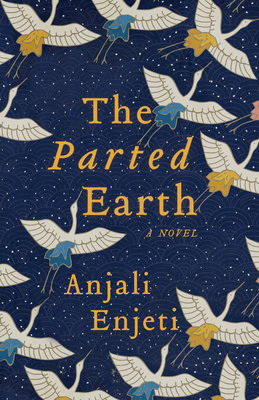
"I've really missed you, Shanti," her father said.
She hadn't heard her birth name in a long time. Even on the plane ride over, during their one-night stopover in London, their connection to Delhi, he'd addressed her by her nickname, Shan. She'd adopted it at the beginning of the first grade, not long after he left them. She wanted something easier to pronounce, something that other kids wouldn't make fun of that sounded more in tune with her last name, her mother's name, Johnson. Shan could be short for Shauna. No one needed to know the truth. But she liked how he said Shanti right now, how it rolled off his tongue. How the th sound became something harder, sharper, something so different than the way her mother used to say it.
Her father lowered himself with a grunt. His hand dove beneath the surface, cupped, poured the water over his head. In his reflection, she spotted the matching depression in his chin, the similar squared angle of his jaw, the identical slight, straight nose. She traced the image of his cheek with her thumb. She had not noticed before how much she resembled him. His skin tone, a deep brown, perfectly matched her own …
Her mother's skin was a creamy white, like almost everyone's in Seattle. Shan had to claim or be claimed by her mother to prove their shared genes. Complete strangers would ask Shan, "Oh, are you adopted?" They asked her mother, "Is she your stepdaughter?" Here in India, Shan could see herself in her other parent, could match her skin to the skin of so many others around her. For the first time, she looked like everyone else, even though every Indian seemed to know she was an American.

